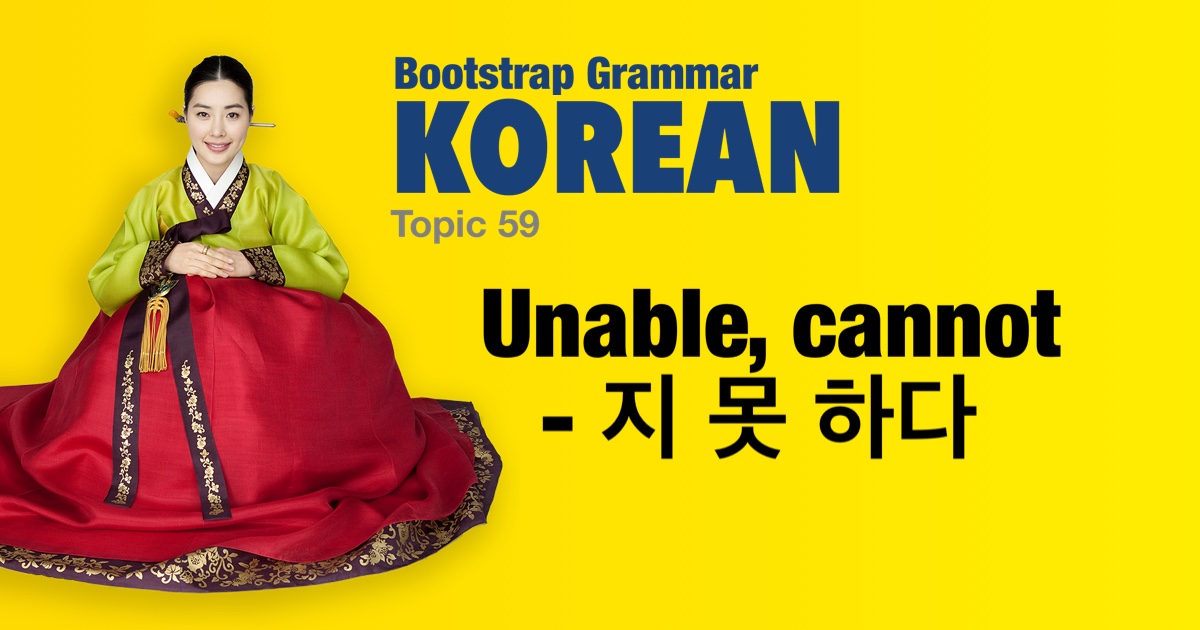Korean grammar - Unable, cannot - 지 못 하다 |
|||
|
|||
The pattern Verb stem + 지 못 하다 is used to express poor performance (not doing something well). Or not being able to do something because an outside influence prevents it. The different tenses follow the normal pattern: • Present tense: Verb stem + 지 못 해요 • Past tense: Verb stem + 지 못 했어요 • Future tense: Verb stem + 지 못 할 거예요 |
| Examples: | |
|
저는 수영을 하지 못 해요.
I can’t swim. / I swim poorly. |
|
|
진우는 콘서트에 가지 못 했어요.
Jinwoo could not go to the concert. |
|
|
저는 투표를 하지 못 했어요.
I couldn’t vote. |
|
|
지우는 대학에 가지 못 할 거예요.
Jiwoo won’t be able to go to college. |
|
|
친구는 오지 못 할 거예요.
(My) friend won’t be able to come. |
|
|
어제 자지 못 했어요.
I couldn't sleep [well] yesterday. |
|
|
비가 너무 많이 왔기 때문에 학교에 가지 못 했어요.
Because it rained too much (she) couldn't go to school. |
|
|
돈이 없었기 때문에 밥을 먹지 못 했어요.
Because (I) had no money (I) couldn't eat. |
|
|
시간이 없었기 때문에 숙제를 끝내지 못 했어요.
Because (I) didn't have time (I) couldn't finish my homework. |
|
|
집에 텔레비전이 없어요. 그래서 그 프로그램을 보지 못 할 거예요.
(We) don't have a TV at home. So (I) won't be able to watch the program. |
|
|
한국어를 잘 하지 못해서 한국에 갈 수 없어요.
(I) can't go to Korea because (I) am unable to speak Korean well. |
|
|
경험이 없어서 잘 하지 못해요.
(I) am not good at it because (I) don't have experience.
|
|
 |
|



